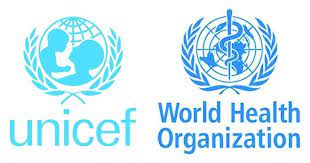By Muhammad Amaan
The Global child vaccination rates remained below pre-pandemic levels last year, the World Health Organization (WHO) and the United Nations Children’s Fund (UNICEF) reported on Monday.
In 2023, 84 per cent of children globally were fully vaccinated against diphtheria, tetanus and pertussis or whooping cough, a triple vaccination considered a key indicator of child vaccination rates.
The figure represents a slight decrease compared to pre-pandemic levels recorded in 2019, according to the report.
The number of children without a single dose of the triple vaccination increased to 14.5 million last year, up from 12.8 million before the pandemic began, it said.
During the Covid-19 pandemic, many places experienced delays and disruptions in their vaccination programmes.
In some countries, the number of vaccine sceptics has increased in the wake of the pandemic, WHO expert Katherine O’Brien said. This development “is resulting in deaths of children,” she added.
O’Brien said that scepticism about vaccination in wealthier countries also affects other regions, for example, when people with migration backgrounds based in Europe spread misinformation in their home countries.
UNICEF expert Ephrem Lemango noted that in low-income countries, lack of trust in healthcare facilities and limited access to vaccines also hinder progress in immunization.
According to the WHO and UNICEF, armed conflicts are another obstacle, with more than half of all children without immunization living in countries characterized by instability, violence and vulnerability.
The two organizations also said that more than 100 countries have been affected by measles outbreaks in the past five years.
“The Measles outbreaks are the canary in the coal mine, exposing and exploiting gaps in immunization and hitting the most vulnerable first,” said WHO Director-General Tedros Adhanom Ghebreyesus.




